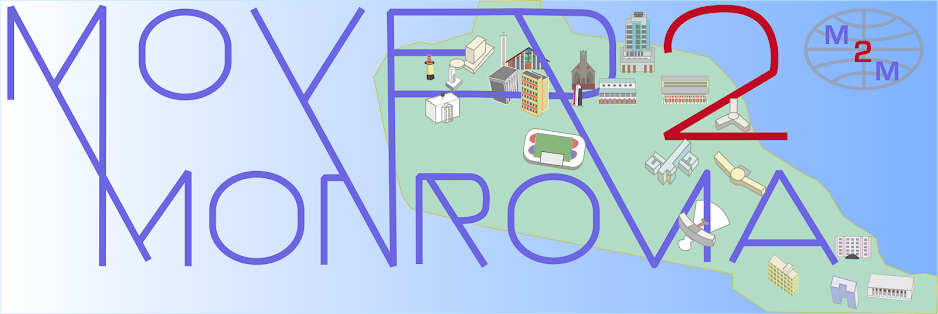The world awaits Thursday's announcement in the Hague, and foreign correspondents have flown in to Robertsfield, and all week has been filing the latest child-soldiers-and-cannibalism "pieces" to add to that particular journalistic canon, if not the wider world's understanding of Liberia and its recent past.
Monrovia has been mostly calm, without the tense, pensive atmosphere of the election season. No one knows what news will come this week, or what this country's reaction to it will be. Some seem to be willing for the drama and action of unrest in the streets.
But lots of people seem to have had enough of that. While there is disgruntlement, and anger that can often lead to violence, there is little momentum that carries even a charged street mob into a chaotic frenzy. There are flashes of unrest, which extinguish as quickly as the flare.
On Saturday night, a motorbike driver died on Sékou Touré Avenue on Mamba Point. A gate had been installed across the foot of the hill, which leads up a hill lined with United Nations and World Bank offices (Sékou Touré is something of the Turtle Bay of Monrovia). After midnight, the gate was down across the street, and either the motorbike driver (a) did not know that the gate was there, or was not open, or (b) the guard closed the gate to prevent the motorbike from passing, possibly because the driver had not bribed the guard to open the gate. The motorbike smashed to bits against the barrier, the gas tank exploding, according to witnesses.
 |
| Sékou Touré Avenue at Newport Street on Sunday morning. The gate's barrier is on the sidewalk, the black burn marks are presumably from the gas tank. |
 |
| Newport Street at the intersection. The United Nations was present, but the scene was calm. |
An angry mob formed in the neighborhood. The guard or guards ran away. The mob put fire to the wooden guard house, but did not cause further disturbance. A provision shop a few feet from the scene was unharmed. The following day, Liberia National Police tactical units and United Nations forces lined the block. Groups of residents formed at the curbs. But there was no confrontation, verbally or physically. The cops asked questions of elders, ascertaining facts.
Many people didn't hear about the incident: I just happened upon it, driving through the city on Sunday morning. By the late afternoon, some expatriates began texting each other warning messages, to steer clear of the area and foretelling of possible mob action or violence from fellow motorbike drivers, or other agitators.
The following day, motorbike drivers did indeed return to the scene. The young men, perhaps more than a few of them former combatants in the war, stood shoulder to shoulder in front of the ruined gate, holding hand-written signs, demanding justice for the guards, and compensation for the victims and their families. That was all they wanted, and so they had organized in a civil manner to ask for it.

No comments:
Post a Comment